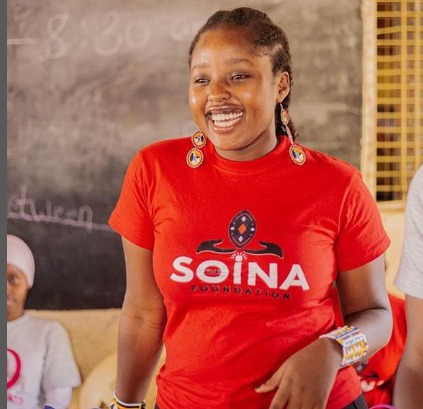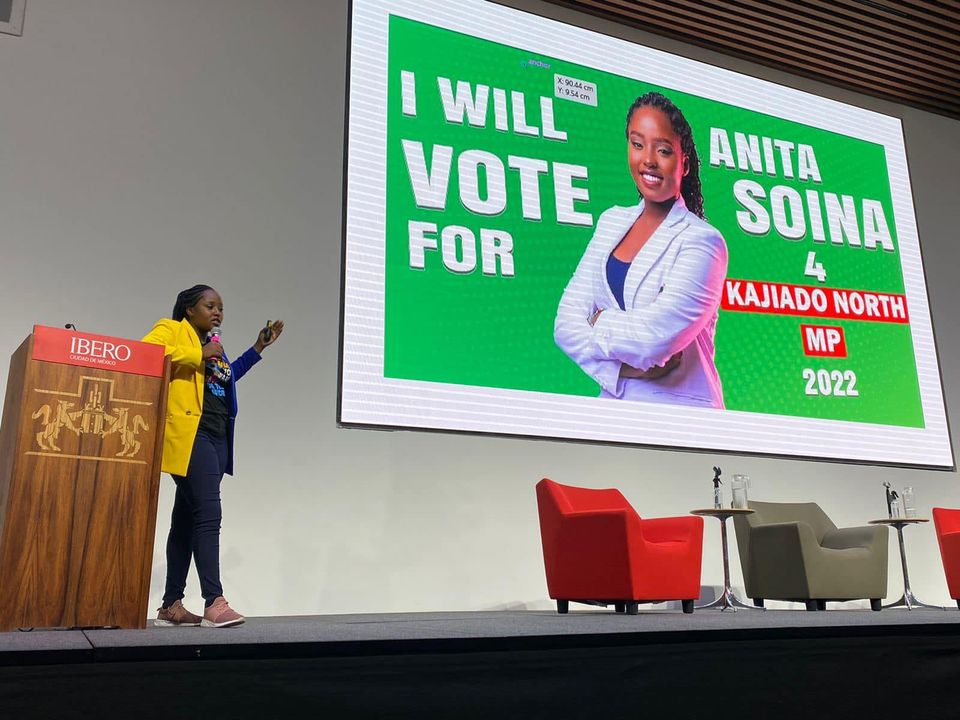Groundbreaking Workshop on AI and Technology-Facilitated Gender-Based Violence at AWiM24
Trending
Wednesday June 4, 2025
Trending

Politics is not for the faint-hearted. It is a filthy arena where deceit, propaganda and backstabbing thrive.
This feature brings out the challenges women face whenever they try to join politics in Kenya and how to overcome them.
To excel in Kenyan politics, one must have a thick skin to withstand the setbacks, deep pockets to run costly and sizzling campaigns, as well as enough numbers to trounce opponents.
It is challenging for women to operate in space due to the constant hostility from their male counterparts, most of whom have normalised chaos and violence as the currency of trade in this field.
In August, President William Ruto, while attending the burial of Njoro MP Charity Kathambi’s husband in Nakuru, confessed that it is not easy for a woman to excel in Kenyan politics. Giving a clear picture of what happens during campaigns, the president mentioned that women politicians are often bullied, touched inappropriately and sometimes roughed up by their male counterparts.
He lauded Kathambi’s husband for allowing her to join politics, admitting that only a few men, particularly from the Kalenjin community, can do that.
While Kenya has admittedly made significant progress in recognising women as equally competent political leaders with the zeal and willpower to bring about change, much more must be done to exploit their full potential. Two-thirds gender rule in Kenya In 2022, female candidates made up an estimated 11 per cent of the total candidates gazetted by the Independent Electoral and Boundaries Commission (IEBC).
Ultimately, female gubernatorial candidates increased from nine in 2017 to 22 in 2022. Of these 22, seven women were elected as County Governors, representing a 32 per cent success rate.
The total number of women MCAs following the August 2022 election now stands at 727, while female MPs stand at 82. There are six nominees to the National Assembly and 18 to the Senate. Women now hold 201 of the 1882 elective seats in Kenya, representing 10.6 per cent of elected leaders. Although this number is up from 172 (9.1 per cent) seats after the 2017 election and 145 (7.7 per cent) after the 2013 election, quite a significant number was locked out due to one factor affecting women politicians: money.
Raising money is still a hurdle
Like sourcing capital and finding investors to fund business ideas is not a walk in the park, raising money for political campaigns, irrespective of the seat one is eyeing, remains a big hurdle for many aspiring politicians’ ambitions.
While others have risen above this hurdle and mounted successful campaigns that saw them win political seats, a good number of aspiring politicians had a difficult time raising enough campaign funds to sustain their quest for office and as if that was not enough, ended up losing elections and all the investment they had put into it.
Some aspirants fundraise through friends, family and supporters; others use their income, whether business or employment and others rely on party support.
Anita Soina’s friends chip in
This writer reached out to understand what goes into sourcing money for political campaigns in the arena best described as murky waters. Anita Soina, the Green MP who ran for the Kajiado North parliamentary seat under the Green Thinking Action Party, said that family and friends came together and helped her raise funds for her campaign.
“My friends from different political affiliations put up small groups and raised money for me,” said Soina.
The young environmentalist had also set aside a KSh 1.5 million ($10,312) card that helped her with small expenses and used it as part of her war chest. Soina uses up KSh 1.5 million She was, however, surprised when she went to fill up her tank at a petrol station and was told that her money was all gone in just eight months. “After I realised the money was finished, I almost sank into depression. I started crying, and I was supposed to go to a meeting. Eight months for that kind of money to go?” she pondered. In total, Soina revealed that she spent KSh 2.8 million. “That was a campaign on a budget!” she quipped.

Given the young politician’s experience that sent her into depression, she said she would like to see better regulation of how politicians spend money during campaigns. “There should be an initiative to counsel young politicians so that they can get mental balance. Some colleagues cannot leave their houses because of mental torture occasioned by the money they spent during the campaigns,” said Soina.
Wrong messaging by funders While the brilliant politician was grateful to the non-governmental organisations that helped to fund their campaigns by providing merchandise, she was unhappy with some of the messages they used. An example is ‘vote for women’; this, in her opinion, made them seem like victims and that people should feel sorry for them instead of fighters who were worthy competitors against men. “ I don’t support the gender cards, we believe in ourselves,” she said.
“Let us be intentional about supporting upcoming women and not always see them as competitors.”
Soina was also disappointed that she did not get much support from fellow environmentalists. She also had a message for the Kenya Women’s Parliamentary Association (KEWOPA). “Let us be intentional about supporting upcoming women and not always see them as competitors,” she said.
Detective Jane Mugo’s experience
Soina is not the only one who had a hard time after the campaigns; Detective Jane Mugo also found herself in a precarious financial position after the campaigns.
If I wasn’t a strong woman, didn’t have God and my family on my side, I would have gone into depression,” said the sleuth. “If I didn’t have friends, people I stood with and the orphans under my care who came to visit me, I would have succumbed to depression,” she added. Mugo ran for the Kirinyaga woman representative seat in the 2022 General Election on the United Democratic Alliance Party and lost at the nomination stage.
Mugo lets go of one home “I thank God I had built a home; I had three homes; I used to pay rent for two and owned one. I had to let go of one home and remained with two because I couldn’t sustain the three homes,” she said. “I have been asking myself what happened to those women who vied in the election using funds drawn from selling their cars and houses; where do they go after that?
The Trimo Security Limited Chief Executive Officer was lucky that she also maintained her office, but sadly some of her employees ran away because their salaries were delayed. “It was the most devastating moment of my life as I had just left the hospital after the kidnap and went straight on the campaign trail. Sometimes my car would stop suddenly because of lack of fuel and voters would buy some for me,” she revealed. “As a politician, you would learn that there is a funeral somewhere and run there, a meeting somewhere and run there just to make people happy,” she said.
Have a godfather, says Mugo.
Mugo claimed that wealthy politicians compromised her agents and presiding officers, and they sold her votes. “I was leading the pack by we were going to sleep on the nomination day but after waking up, all my votes had been given to my closest competitor,” she alleged.
Campaign Finance Act Controversy has always surrounded the issue of funds during the campaign period. The Election Campaign Financing Act, which sought to regulate money spent on campaigns and also ban contributions by foreign governments, was passed in 2013 and was to take effect in 2017. However, when the IEBC proposed it would be implemented that year, the MPs vehemently opposed it, claiming it was not feasible. The commission was forced to make amendments and tabled a revised version of the regulations again in August 2021, but the politicians shot it down again.
They argued the regulations were gazetted without parliament’s approval and past a statutory deadline of at least 12 months before the elections. “It is also unreasonable to expect a candidate for a political seat to hand over his money to a committee of people to run for him as if it is public funds,” argued Homa Bay MP Peter Kaluma.
According to the commission, the spending limit for a presidential election was set at a maximum of KSh 5.2 billion ($44.3m). At the same time, governors, senators and female representatives got a limit of KSh 433 million ($3.69m). By comparison, the monthly minimum wage in Kenya was KSh 15,201 ($131). Implementation of Election Campaign Financing Act Deferred The money was to be used for the venue of the campaigns, merchandise, advertising, campaign personnel, and transportation. Additional expenses included communication, nomination fees, security, accommodation, and administrative expenses. The commission also proposed different spending limits for governors, woman representatives, and MPs in different parts of the country. For instance, Turkana and Tharaka Nithi had different spending limits. After the push and pull, implementing the Campaign Finance Act was deferred again, paving the way for politicians to splash money unhindered. Spike in the number of helicopters According to a previous report, there was a spike in the number of helicopters owned or leased by politicians during the election cycle.
More business owners, farmers and ranchers acquired choppers in 2021 than the previous year. The demand for choppers increased apparently from politicians seeking to use them for their campaigns ahead of the August 2022 General Election. Data from Aero Club of East Africa (ACEA) showed that 47 aircraft were acquired in Kenya, of which 41 were choppers. Al Jazeera reported in March 2020 that former KCAA director-general Gilbert Kibe said that by the end of 2020, there were 67 registered helicopters, most of which were owned by politicians. All is not lost Even though it is true that politicians with deep pockets command influence and dominate our politics, we have witnessed cases where a significant number of young, budding politicians have won elective seats without spending money. For instance, Linet Chepkorir ‘Toto’ defied all odds to win the Bomet County woman representative seat on a United Democratic Alliance (UDA) ticket at 24.
Speaking to the press after winning, the youthful woman said she believed in herself, having been born a leader naturally. “Believing in yourself is very important. Appoint yourself. Never wait to be appointed. Every dream is valid. Everything is possible with God; I am a living testimony,” she said. Funding campaigns was an uphill task Toto faced an uphill task funding her campaigns with no financial muscle compared to her competitors. She resolved to use a boda boda to traverse the county to sell her agenda to the electorate. In 2017, Leah Nachere became the first elected woman in Turkana, although she was illiterate. Her rivals had the gift for what you could call ‘kizungu mingi’ and their common denominator was to mock her for daring to contest a seat she couldn’t even write. But when the last ballot for the Lake Zone ward in Turkana County had been counted, Leah Nachere was a clear winner.
This shows that even without money, women should always put themselves out there, and those with money should always proceed with caution in case things go south.
This story is part of the African women in media AWIM/Luminate young women in politics programme.
We’re not gonna spam. We’ll try at least.

Copyright 2020. African Women In Media
Copyright 2020. African Women In Media
Recent Comments